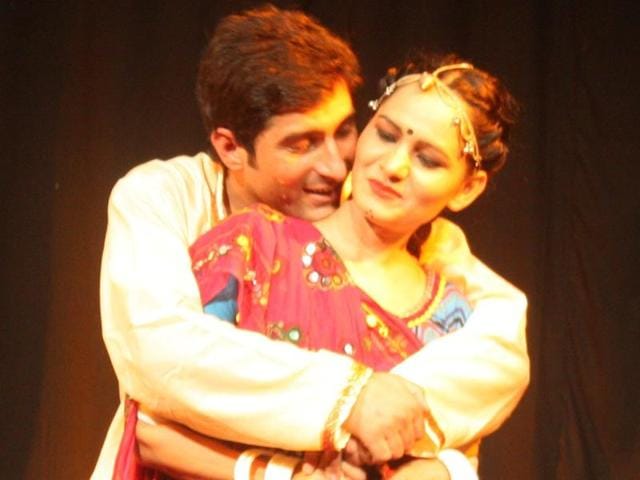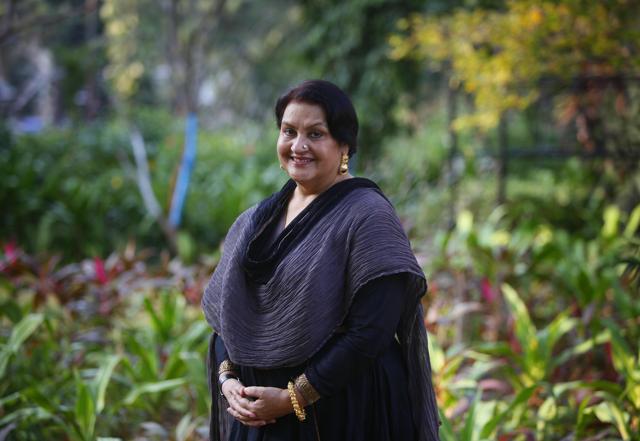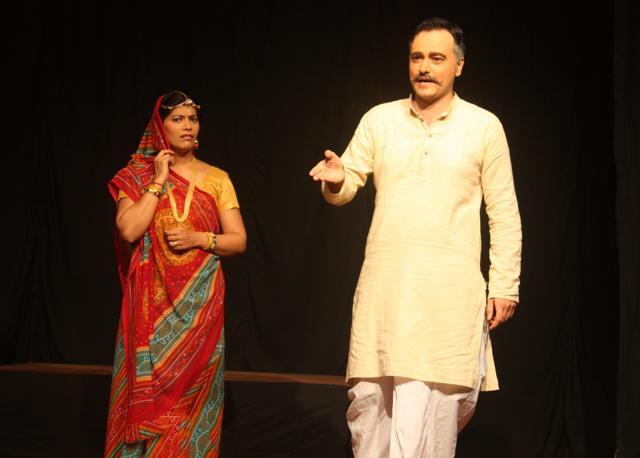Nadira Babbar’s new play is inspired by the stories of Vijaydan Detha
Nadira Zaheer Babbar’s latest play premieres in Mumbai this week. It is a compilation of three short stories by late writer Vijaydan Detha, who was nominated for the Nobel Prize in 2011.
Paheli, a 2005 film starring Shah Rukh Khan and Rani Mukerji, was about a ghost, who falls in love with a newly-married woman. This spirit woos the woman by taking the shape of her real husband, when the latter is away on business. Set in Rajasthan, the movie was the remake of another film, Duvidha (1973), which was based on a short story — also called Duvidha — by acclaimed Rajasthani writer Vijaydan Detha.

Watch: Shah Rukh Khan and Rani Mukerji in Paheli
The late Padma Shri recipient, who was considered the ‘Shakespeare of Rajasthan’ by some, was also the author of a folktale that was converted into the classic Hindi play Charandas Chor by playwright Habib Tanvir. In 1975, Shyam Benegal transformed Tanvir’s drama into a movie by the same name. It featured Smita Patil, among other actors.
The examples of literary figures and artistes being inspired by Detha’s works are several. He was even nominated for a Nobel Prize in literature in 2011, alongside popular Japanese writer Haruki Murakami.
Now, theatre veteran Nadira Zaheer Babbar has adapted three of Detha’s short stories — Uljhan, Moozi Soorma and Naagin Tera Vansh Badhey — into a one-and-a-half-hour play, titled Padhaaro Mharey Des. The new drama, which will be performed by her theatre company, Ekjute, premieres at NCPA, Nariman Point, on August 13, and has a cast of 20-25 actors.“For the play, I have picked three stories that are absolutely different from each other. Two are women-centric stories, while the third is a comedy,” says Babbar.

Babbar picked three stories for the play. One is a comedy, while the other two have women-centric storylines.
Uljhan, she tells us, is about a woman who is abandoned in a forest by her husband. There, she meets another man, an almost feral creature, who she takes under her wing, teaching him how to behave like a human being. This man turns out to be a prince. But when he becomes the king and retains his throne, he forgets about the woman. She then vows to teach him a lesson.

Naagin Tera Vansh Badhey is about a male cobra and female cobra. The male cobra leaves the female when he transforms into a human being. Moozi Soorma, meanwhile, is a comedy about a miser, who impresses Laxmi with his niggardly nature. Babbar says these stories are still “crucial and relevant” in today’s world, primarily because they all have female protagonists.
Read: Nadira Babbar turns playwright to underline present-day struggles
Most importantly, as fantastical as Detha’s storylines may seem, he is known to be a master storyteller of folklore. “He is one of the finest writers [in India]. I feel small that I didn’t know about him or his work before. Thank God I know about him now. I have read all his works,” adds Babbar, who began writing the script for the three acts last year. Her troupe began reading the play about four-five months back. She says that 30% of the play’s dialogue is in a Rajasthani dialect.

One of the actors in the production, Manav Pandey (29), is a big fan of Detha’s works. He feels he was a “progressive” writer, who, for reasons unknown, did not garner as much popularity as other authors such as Munshi Premchand. “I remember, one of his stories, Dohri Zindagi, is on lesbianism. It’s a beautifully written story about a seth (businessman) who wants to receive dowry, and hence brings up his daughter as his son. But, of course, when the daughter is married to another woman later in her life, the truth comes out. But, the two women decide to continue living together as a couple, despite the villagers telling them that they can’t do so. His work is impactful, and he portrayed human relations very well,” says Pandey.





